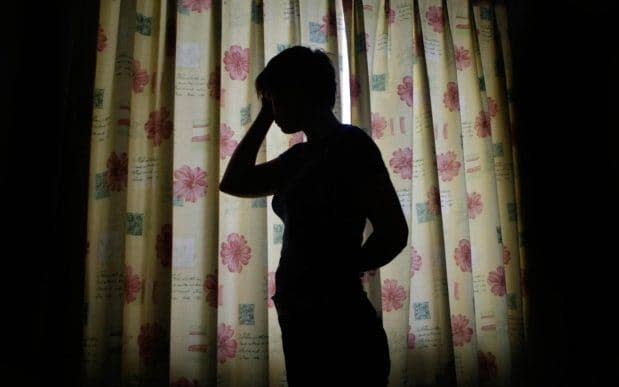Why are so many vulnerable Chinese women being detained at Yarl's Wood?

The note passed to a client in desperation reading, simply, ‘help me’ should have been enough to secure Shuai’s path to safety. But after handing the slip of paper to a man at the brothel where she was enslaved - forced to work there after her husband had taken insurmountable sums from loan sharks and then gone AWOL, leaving her to flee China for Britain amid ever worsening threats from the men seeking recourse - immigration officers arrived the following day, taking her to Yarl’s Wood, where she would go on to be detained for almost a year. A report released yesterday revealed that Chinese trafficking victims like Shuai make up the largest group of female immigration detainees in Britain: 420 in 2018, of whom 92 per cent were not removed from the UK but released, left to pursue their asylum cases.
Her detention was not the fault of the “kind man” who alerted authorities to her situation, explains Shalini Patel, a solicitor at Duncan Lewis Public Law who took on Shuai’s case and other “utterly shocking” ones exposed by Women For Refugee Women (WRW)’s research. Rather it was a series of systematic failures that leaves victims like her, many of whom are forced into sexual exploitation or labour after being smuggled into the UK, at the mercy of repeated misguided decisions from the Home Office, who Patel says are guilty of “treating these women just as another number.”
For Shuai, Patel explains, the warning signs were there from the outset. During the immigration raid, she told officials she was a nanny, having been groomed by her traffickers not to reveal the circumstances under which she was really there. Despite the bedroom being filled with condom wrappers and sex toys, and there being no children in the house - just the two men watching her - no alarm bells rang; when moved to Yarl’s Wood, she would repeatedly pull down her knickers in public, attempting to urinate. Yet these “clear indicators” that she was unfit, psychiatrically, to be held - which resulted in a medical report detailing how she was “decompensating in detention” - were not enough to secure her release.
Things worsened still when, after attempting to take her life, she was placed on suicide watch; observed 24 hours a day by a male guard, not long after having been removed from the house in which she was under the watchful gaze of the sexually exploitative men imprisoning her. “It’s just so inhumane,” Patel says of the case, which she describes as “probably the most horrendous I’ve seen.
“They’re all horrendous in their own right, but that was actually incredible.”
“During our calls with and visits to Chinese women in Yarl’s Wood, many have told us that they have lost all hope while in detention,” WRW’s Samatha Hudson explains, adding that “half the women in the sample were having thoughts about killing themselves.”
The report details cases in which one woman was denied release - in spite of having been approved for it - for more than two weeks after the decision had been taken on the basis that a bedspace in a safehouse could not be found; another, who had been forced into prostitution, was sent from Yarl’s Wood back to the address where she had been sexually exploited prior to being detained.
In February, after 11 months, Shuai finally walked free. And while detention is known to dramatically curtail women’s ability to speak about trafficking and other ill-treatment they might have been subjected to, stories like hers won’t stop, WRW’s report says, because “the Home Office is deliberately refusing to protect women who have experienced serious human rights abuses.” Instead, failure to act on their own Adults at Risk policy, introduced in 2016 to protect vulnerable people - including victims of trafficking and gender-based violence - “is knowingly inflicting further harm and trauma” on those who need help most.

The charity says that 85 per cent of the women they have interviewed since the guidance came into effect had been victims of forced marriage or prostitution, genital mutilation and rape - findings corroborated by a report from HM Inspectorate of Prisons released int the same month.
The Home Office must start looking at things on a case-by-case basis, Patel says, rather than allowing potentially devastating, life-altering decisions to be made without proper care. She adds that the imprisonment of pregnant women and children at Yarl’s Wood has ended in recent years, an acceptance that such groups should not be held there: so too should this extend to victims of trafficking.
“It's just so degrading,” she says. “Stop detaining vulnerable women, that’s the end of it.”


